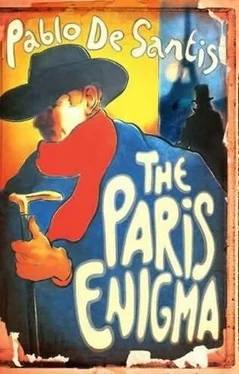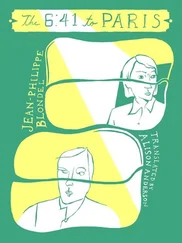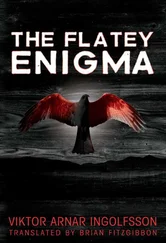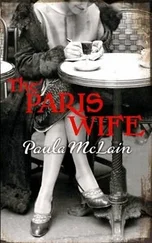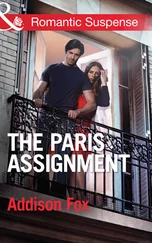Arzaky’s voice sounded remote, almost as if I were dreaming.
“If Darbon managed to solve this case, although it seemed simple on the face of it, his name would be in all the papers again, tied to the heart of Paris itself. He would have achieved the definitive victory over the interloper…”
“The interloper?”
“Me. He also used to call me ‘the damn Polish traitor.’”
Arzaky reached into his pocket and pulled out a pair of tiny tweezers, a tiny scissors, and a tiny metal box. They looked like they belonged in a dollhouse. He carefully took a sample of the glass shards. I prayed he wouldn’t get any oil on him, because then I’d have to put up with his bad temper. He pointed out a cord that was almost completely soaked in the black liquid, and cut off a piece with his miniature scissors. Arzaky put the cord and the glass into the metal box, which he then returned to his pocket.
“Do you understand the nature of this trap? The killer put a bottle of machine oil on the stairs. It’s very thick oil, and made the steps impossibly slippery. Darbon went up without a lantern, perhaps according to the instructions of the killer himself, who must have set up this meeting with him. We should look for evidence of his correspondence. When Darbon’s foot hit the cord, the bottle tipped over, spilling its contents onto the steps, causing him to slip and fall.”
“And how could someone get up here and set the trap without anyone seeing him?” I asked.
“At six o’clock the workers leave for the day and only the night watchman remains. Everyone knew that he liked to drink, and that afternoon he received a gift of two bottles, addressed to him from an anonymous benefactor. He drank them and passed out. He didn’t see or hear anything.”
I pointed to a small puddle of oil a few stairs farther up. Arzaky shone his lantern on it.
“I think the killer first considered placing the bottle higher up,” I said. “He calculated the trajectory of the fall and decided to move it. In the process he accidentally spilled a little.”
Arzaky looked at me distastefully, as if it was annoying to him that I point out some imperfection in the murder. But then he said, “All the better for us. The killer must have stained his clothes, gloves, or shoes. Have you gotten this all down?”
“You mean the bottle, the cord, and the oil? I remember it perfectly.”
“And my words? Don’t you think you should write down what I say?”
I hurried to find a notepad in my pocket. As I hastily took out a pencil, it slipped from my fingers, bounced, and fell into the void. I was suddenly aware of how high up we were. I peeked over the edge, and seeing how far below the ground was made my stomach turn and my hands and forehead began to sweat.
I tried to play off the loss of my pencil as an intentional experiment.
“They say that if you drop a coin from this height, the force of gravity increases the speed of its fall so much that it could go through a man’s skull.”
“Don’t be an idiot, you’re forgetting about the air’s resistance. And now what are you going to use to write with?”
I pointed to my forehead.
“Like a steel trap.”
“Old Tanner responded to each and every one of my sentences with an amazed ‘Oh’ or a ‘That never would have occurred to me.’ You don’t even pay attention. What are you looking at?”
I didn’t answer right away.
“The whole city. Do you realize that I’m incredibly lucky? I just arrived in Paris and I’m observing it from a height that even those born here have never seen.”
“Get away from the edge, before you get even luckier: you could be the first foreigner to fall from up here.”
Avoiding the oil slick, we began our descent.
case?” I asked him.On the way back Arzaky seemed discouraged.
“Do you think this is a difficult
“Even the easiest case can get complicated. What worries me is not that it can’t be solved, but rather that it will be solved in a trivial way. That in the end the solution will be something absurd. An indignant lover, a jealous husband, a crime of passion…”
“Don’t you like crimes of passion?”
“No. I prefer envy, ambition, revenge-especially revenge, for something silly that everyone thinks has been forgotten. Even suicides that have been covered up. But not murders committed out of lust or insanity. There’s nothing admirable in them. Those cases are purely formulaic. They have no poetry.”
Every once in a while, a passerby turned to look at the great Arzaky, whose photograph often appeared in the newspaper. Arzaky walked briskly, oblivious to the attention.
“Now what are we going to do?”
“I don’t know what you’re going to do, but I’m going to rest. At six I have a meeting with the people from the fair’s organizing committee. And as for your other assignment, have you figured anything out?” I shook my head no and he continued, “I was told that Castelvetia wrote the name Reynal in some hotel’s register, but no one has seen him yet.”
“And what do you suspect?”
“Castelvetia was the last one to join The Twelve Detectives. Craig insisted on it. I was against it. Caleb Lawson detests him; they harbor a mutual grudge. When we issued the invitations, I doublechecked his résumé. Most of his cases are impossible to verify. He could be an infiltrator, a journalist putting together information for an exposé of us, or an envoy from the European police’s annual secret meeting.”
“A spy? ”
“Who knows? We detectives are men with shady pasts. We can invent our histories, because our career has no supporting institutions, like doctors or lawyers. We are self-made men in every sense of the word.”
We had arrived at the point where our paths separated.
“As soon as you can, follow Castelvetia and find out his secret,” Arzaky ordered me. “Right now, when all eyes are on us, I don’t want any surprises.”
Faced with Arzaky’s insistence, I had no choice but to follow Castelvetia. Of course it’s not easy to follow a man who is a specialist in tracking, since he could easily discover what I was up to. Craig had taught us to become invisible; the first thing one had to do was think about something else, move as if sleepwalking, get closer as if by accident. I followed Craig’s teachings so obediently that I forgot I was following the Dutchman and I bumped right into him in the middle of the street. I shouted out an apology, in an intentionally high-pitched voice so he wouldn’t recognize me. He was so wrapped up in his thoughts that he didn’t even look up, and immediately went into the Varinsky Hotel.
I distanced myself a few paces. The Varinsky was a hotel for tired travelers who aren’t choosy: it was part hostel and part brothel. Like all the hotels and all the pensions in Paris those days, it was completely full, since the committees of visiting countries had already begun to arrive. I waited outside until he left. Then, instead of following him, I resolutely entered the hotel. A nearsighted young man came out to assist me, which is to say, to get rid of me. I put some coins into his pockets as I mentioned the name Reynal.
“Room twelve,” he said.
Craig had warned me: sometimes investigations are complicated and tiring, and other times we solve them immediately. A detective must be willing to work, but even more willing to receive a revelation. I was certainly willing: I knocked on the door and it opened, with no delay or questions. Inside the room there was a young woman: she looked as if she had just gotten out of bed. Ever since that moment, I have always adored women who’ve just woken up and are still somewhat in sleep’s clutches. She wore a distracted smile as she stretched languidly. I didn’t quite know what this situation meant for The Twelve Detectives, but I was even more confused as to what it meant for me. Castelvetia’s assistant was a woman: this was unprecedented. I tried to replace the entranced expression on my face with a shocked one.
Читать дальше
